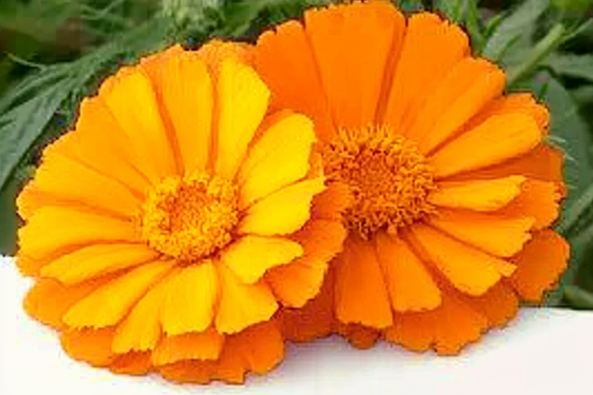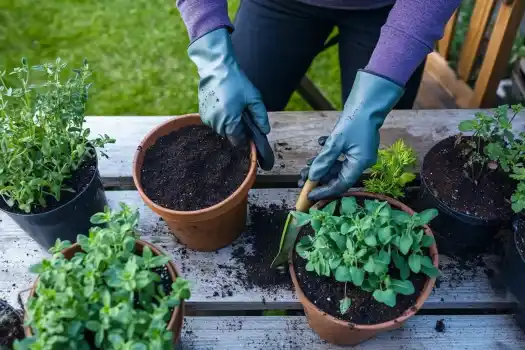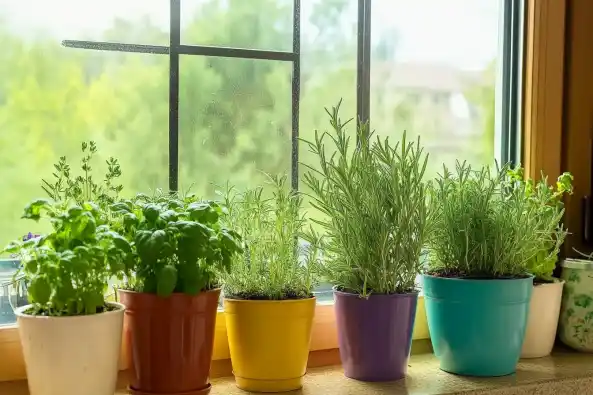Herbs have been cherished for centuries for their culinary, aromatic, and medicinal properties. Starting an herb garden is a fulfilling endeavor that not only adds greenery to your space but also brings health benefits right to your fingertips. Let’s dive into how you can create your very own herb garden with five easy-to-grow medicinal plants.
Why Grow Medicinal Herbs at Home?
The Benefits of Growing Your Own Medicinal Herbs
- Health at Your Fingertips: Growing your herbs ensures you have access to fresh, chemical-free remedies whenever needed.
- Cost-Effective: Cultivating your own plants reduces reliance on store-bought supplements or medicines.
- Sustainable Living: An herb garden contributes to eco-friendly living by reducing packaging waste.
Easy and Accessible Remedies for Everyday Use
Medicinal herbs like peppermint and chamomile provide natural remedies for common ailments. With minimal effort, you can prepare teas, tinctures, and balms that are effective and safe.
5 Easy-to-Grow Medicinal Plants for Beginners
1. Calendula (Calendula officinalis)

Growing Needs (Soil, Light, Water)
Calendula thrives in well-draining soil with plenty of organic matter. Place it in a sunny spot and water moderately to keep the soil moist but not soggy.
Medicinal Benefits (Skin Healing, Anti-inflammatory)
Calendula is celebrated for its skin-healing properties. Its anti-inflammatory compounds help soothe minor burns, cuts, and rashes.
Simple Uses (Infusions, Salves)
Steep dried petals in hot water to make a healing infusion or infuse them in oil to create soothing salves for skin irritations.
2. Peppermint (Mentha × piperita)
Growing Needs (Container or Ground, Partial Shade)
Peppermint is highly versatile, thriving in containers or directly in the ground. It prefers partial shade and consistently moist soil.
Medicinal Benefits (Digestive Support, Headache Relief)
Peppermint is a go-to herb for digestive issues and headaches. Its menthol content provides a cooling effect, relieving discomfort.
Easy Recipes (Teas, Tinctures)
Brew fresh or dried peppermint leaves into tea for digestion or create a tincture for quick headache relief.
3. Chamomile (Matricaria chamomilla)
Growing Needs (Full Sun, Well-drained Soil)
Chamomile flourishes in full sunlight and requires well-drained, sandy soil. It’s a hardy plant perfect for beginners.
Medicinal Benefits (Sleep Aid, Anti-Anxiety)
Known for its calming properties, chamomile is excellent for promoting relaxation and improving sleep quality.
DIY Uses (Teas, Compresses)
Steep chamomile flowers to prepare a soothing tea or create a compress for irritated skin.
4. Tulsi (Ocimum tenuiflorum)
Growing Needs (Tropical Conditions, Indoors or Outdoors)
Tulsi, also known as Holy Basil, thrives in tropical climates. It can be grown indoors or outdoors with plenty of sunlight and regular watering.
Medicinal Benefits (Immune Boost, Stress Relief)
Tulsi supports the immune system and helps reduce stress, thanks to its adaptogenic properties.
Popular Preparations (Teas, Fresh Leaves)
Use fresh leaves to brew a fragrant tea or incorporate them into meals for a health boost.
5. Yarrow (Achillea millefolium)

Growing Needs (Drought Tolerant, Poor Soil)
Yarrow is incredibly resilient, thriving in poor soil and requiring minimal water once established.
Medicinal Benefits (Wound Care, Fever Reduction)
This herb is known for its ability to stop bleeding and reduce fevers, making it a valuable addition to your garden.
Home Remedies (Poultices, Infused Oils)
Crush fresh yarrow leaves to create a poultice for wounds or infuse dried flowers in oil for topical applications.
Setting Up Your Herb Garden: A Step-by-Step Guide
Choosing the Right Location (Indoor vs. Outdoor)
Pick a sunny spot with at least 6 hours of direct sunlight daily. For indoor gardens, use south-facing windows or grow lights.
Selecting the Best Containers or Beds
- Containers: Ensure they have drainage holes to prevent root rot.
- Raised Beds: Ideal for outdoor herb gardens, providing better soil control and drainage.
Soil Preparation and Companion Planting Tips
- Use nutrient-rich, well-drained soil.
- Incorporate companion planting to optimize growth—for example, plant yarrow alongside calendula to repel pests.
Harvesting and Using Medicinal Herbs
How and When to Harvest for Maximum Potency
Harvest herbs in the morning after the dew has dried. This is when their essential oils are most potent.
Simple Ways to Use Medicinal Herbs in Everyday Life
- Infusions: Brew herbal teas for specific ailments.
- Topical Applications: Use salves and poultices for skin care.
- Cooking: Incorporate fresh herbs into meals for added flavor and health benefits.
Storing Herbs: Drying, Freezing, and More
- Drying: Hang bundles of herbs in a well-ventilated area.
- Freezing: Chop herbs and store them in ice cube trays with water or oil.
Additional Tips for Beginner Herb Gardener

Common Mistakes and How to Avoid Them
- Overwatering: Most herbs prefer slightly dry conditions; water sparingly.
- Poor Soil: Use well-drained soil to prevent root rot.
- Crowding: Space plants adequately to ensure proper airflow and growth.
Where to Source High-Quality Seeds and Plants
Purchase seeds and plants from reputable nurseries or online stores specializing in organic herbs.
External Resource: Check out this guide for expert advice on starting an herb garden.
Frequently Asked Questions
How Much Sunlight Do Medicinal Herbs Need?
Most medicinal herbs require at least 6 hours of sunlight daily. Some, like peppermint, tolerate partial shade.
Can I Grow Medicinal Herbs in Small Spaces?
Yes! Herbs like peppermint and tulsi thrive in containers, making them perfect for balconies or windowsills.
How Do I Know If My Herbs Are Ready for Use?
Look for vibrant, healthy leaves. For flowers like chamomile, harvest when fully bloomed.
Further Reading and Resources
By starting an herb garden, you’re embracing a rewarding hobby that combines wellness, sustainability, and the joy of nurturing nature. 🌱 Whether you’re sipping chamomile tea or applying a calendula salve, your garden will be a source of healing and happiness.
Happy gardening! 🌿

